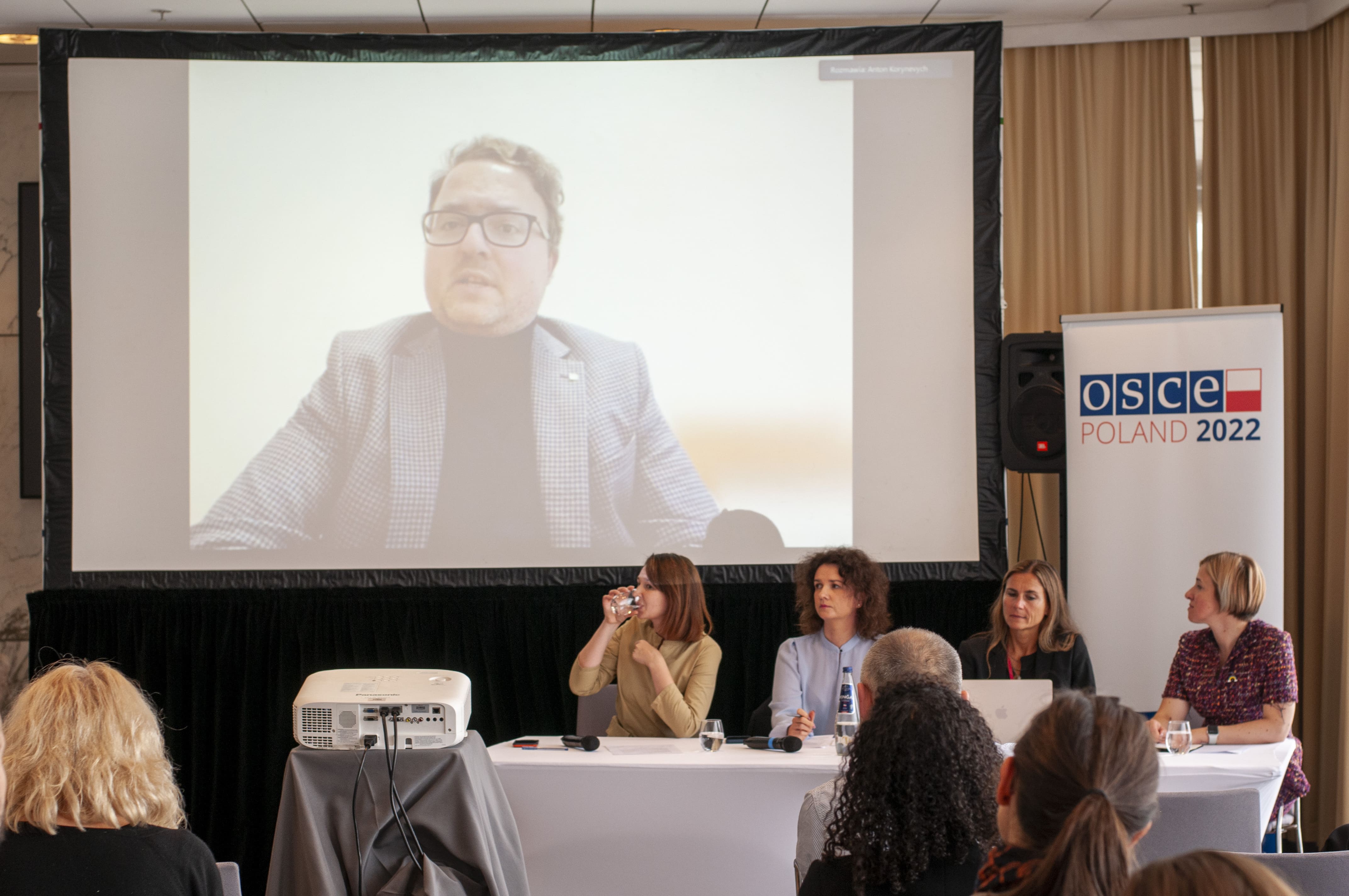"The evil left unpunished – will only keep growing”
The global security system in Europe was destroyed by Russia's military aggression against Ukraine. Now it is facing new global challenges. That's why the participants of OSCE Human Dimension Conference discussed the format of the Special Tribunal for the Crime of Aggression against Ukraine on October 5 in Warsaw during the side event, organized by Civil Network OPORA together with International Centre for Ukrainian Victory.
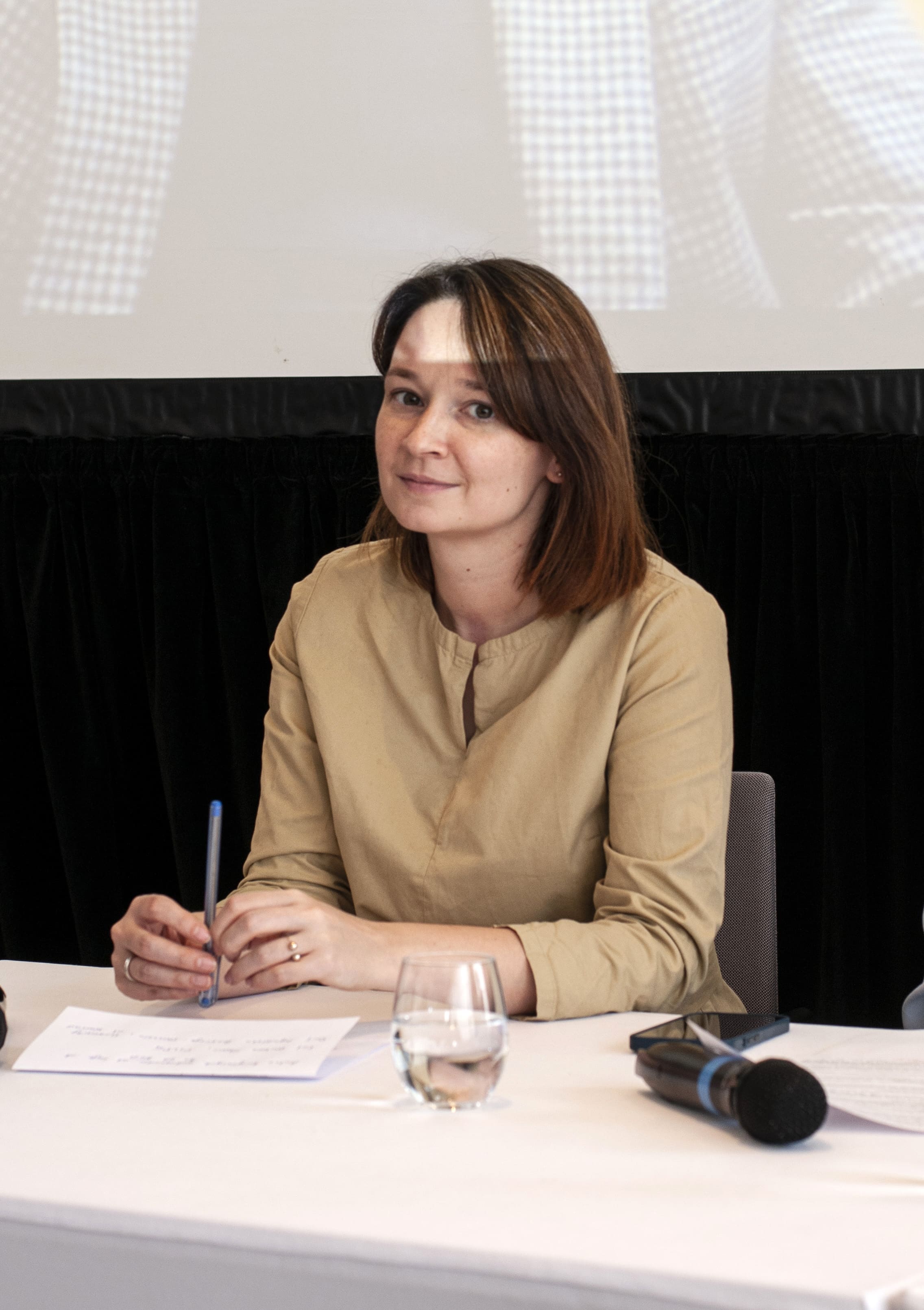 “With every new massive graves discovered in Bucha, Mariupol or Izium the world got terrified with how far Russian proprietors can go. There is no doubt that Russia bears responsibility for all the atrocities that have been committed in Ukraine. Russian soldiers and their commanders who committed war crimes will be held responsible,” started the discussion Iryna Shvets, a Board Member and Senior Project Manager at OPORA Civil Network. Legal scientific community and civil society keep saying that the crime of aggression is often called the “mother of all crimes”, the supreme international crime, which is the basis for all other crimes. “The time has come for the international community and the Ukrainian society to establish real and effective mechanisms of how to hold Russian leadership accountable for the act of brutal and unprovoked aggression,” Iryna Shvets said.
“With every new massive graves discovered in Bucha, Mariupol or Izium the world got terrified with how far Russian proprietors can go. There is no doubt that Russia bears responsibility for all the atrocities that have been committed in Ukraine. Russian soldiers and their commanders who committed war crimes will be held responsible,” started the discussion Iryna Shvets, a Board Member and Senior Project Manager at OPORA Civil Network. Legal scientific community and civil society keep saying that the crime of aggression is often called the “mother of all crimes”, the supreme international crime, which is the basis for all other crimes. “The time has come for the international community and the Ukrainian society to establish real and effective mechanisms of how to hold Russian leadership accountable for the act of brutal and unprovoked aggression,” Iryna Shvets said.
According to Anton Korynevych, Ambassador-at-large at the Ministry of Foreign Affairs, Ukraine cannot adjudicate the crime of aggression against Ukraine in national courts, in the courts of Ukraine, due to the issues of personal immunities of heads of state and heads of government from foreign criminal jurisdiction. No country in the world can try a president of a foreign country. This is a general rule, a general principle of law and international law. Due to the jurisdictional restrictions of the Rome Statute,. Ukraine suggests to establish a Special Tribunal, because there is no mechanism available nowadays to try perpetrators of the crime of aggression against Ukraine. “We consider that our tribunal, the Special Tribunal for the Crime of Aggression Against Ukraine, should be a Tribunal for this one crime. And only for the situation in Ukraine. We do not intend to invent some universal mechanism or to create some alternative practices. We do think that the ICC has primary responsibility for justice worldwide, when we talk about mass atrocity international crimes. So, one of our ideas is the establishment of the Special Tribunal which would be a complementary, supplementary one to the ICC, which will not impede or hamper ICC’s jurisdiction and work. But it will complement its important work with the jurisdiction of the crime of aggression”, said Anton Korynevych.
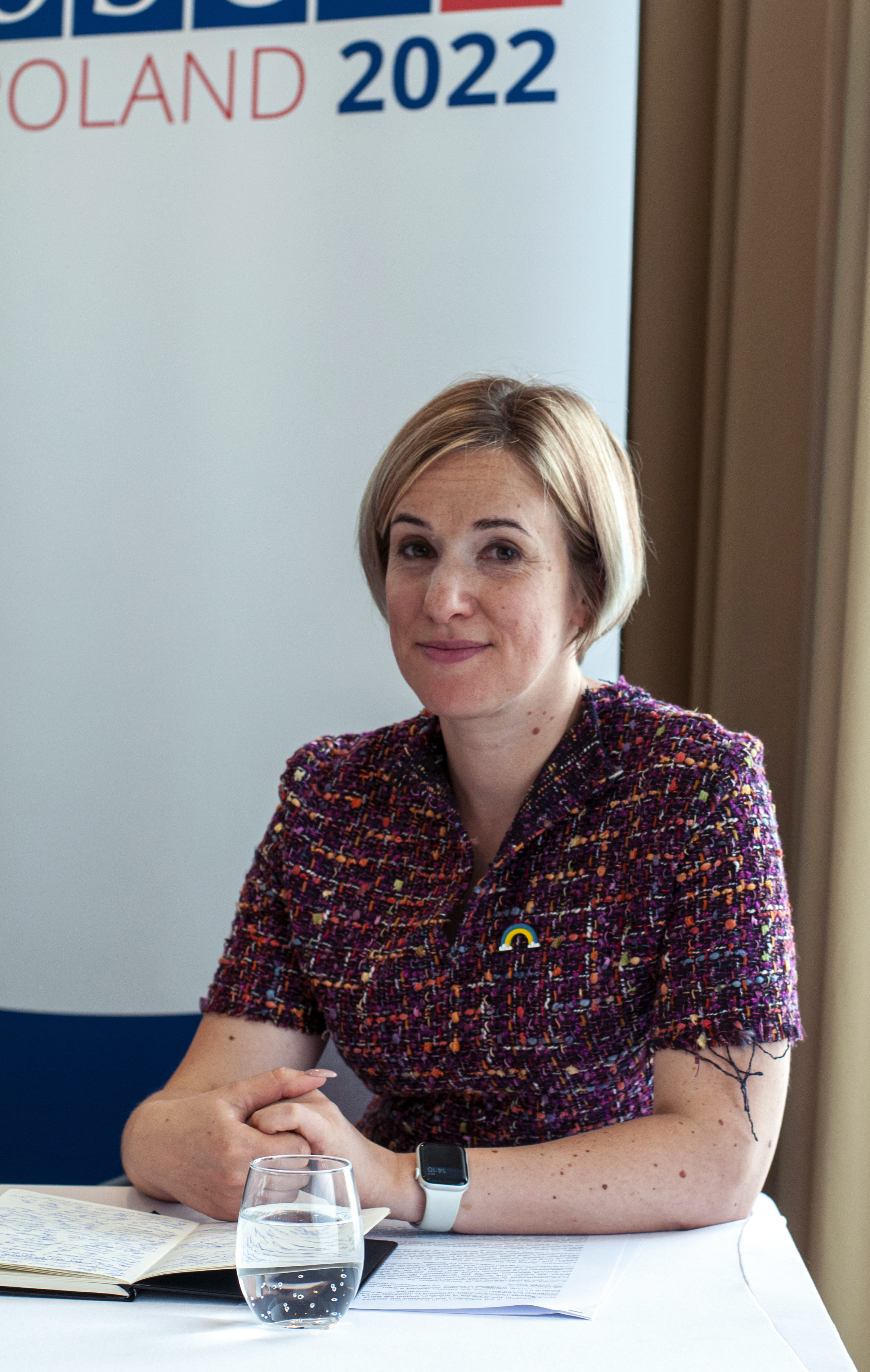 Olha Kotsiuruba, Senior Legal Advisor at Civil Network OPORA in this discussion represented the point of view of Ukrainian civil society. “OPORA opened a Center for assisting war crimes documentation in Warsaw. In our daily communication with witnesses and victims of war crimes who are currently in Poland, we can reassure Ukrainian society's demand for justice” Olha said. As she mentioned, the lack of a mechanism for countering aggression already creates distrust in the mechanisms of international humanitarian law and in general of the existing international order: “The longer the discussion continues without immediate active action, the bigger the level of this frustration will be. Therefore, a judicial act of condemning aggression must take place, even if it happens in absentia, and the top management will be sentenced only symbolically. However, the legal fact of conviction for aggression will form the basis of decisions regarding other international crimes the aggression had caused and will provide opportunities to establish a clear compensation mechanism for damage”.
Olha Kotsiuruba, Senior Legal Advisor at Civil Network OPORA in this discussion represented the point of view of Ukrainian civil society. “OPORA opened a Center for assisting war crimes documentation in Warsaw. In our daily communication with witnesses and victims of war crimes who are currently in Poland, we can reassure Ukrainian society's demand for justice” Olha said. As she mentioned, the lack of a mechanism for countering aggression already creates distrust in the mechanisms of international humanitarian law and in general of the existing international order: “The longer the discussion continues without immediate active action, the bigger the level of this frustration will be. Therefore, a judicial act of condemning aggression must take place, even if it happens in absentia, and the top management will be sentenced only symbolically. However, the legal fact of conviction for aggression will form the basis of decisions regarding other international crimes the aggression had caused and will provide opportunities to establish a clear compensation mechanism for damage”.
Kotsiuruba noticed that there is also a second aspect. A separate approach to the crime of aggression and the creation of a special international tribunal as soon as possible is a necessary step, but this does not reduce Ukraine's responsibility to reform national judicial system: “Вemanding from international partners to support the idea of a special tribunal on aggression, we as a civil society pay attention to the so -called home work that Ukraine has to do. If we look at the statement of international experts regarding hybrid tribunals, we see that the rationale for their creation is, among other things, independence, political impartiality and the introduction of international standards to the national judiciary. Indeed, the legislation of Ukraine in terms of international crimes has many gaps”.
“I believe that’s the combination of these two ways – international support for the creation of a separate tribunal on aggression and systematic work within the state to implement international standards and best practices in the investigation of war crimes, crimes against humanity, and genocide, coordination with the ICC, will ensure punishment of the perpetrators for all 4 types of international crimes”, Olha Kotsiuruba said.
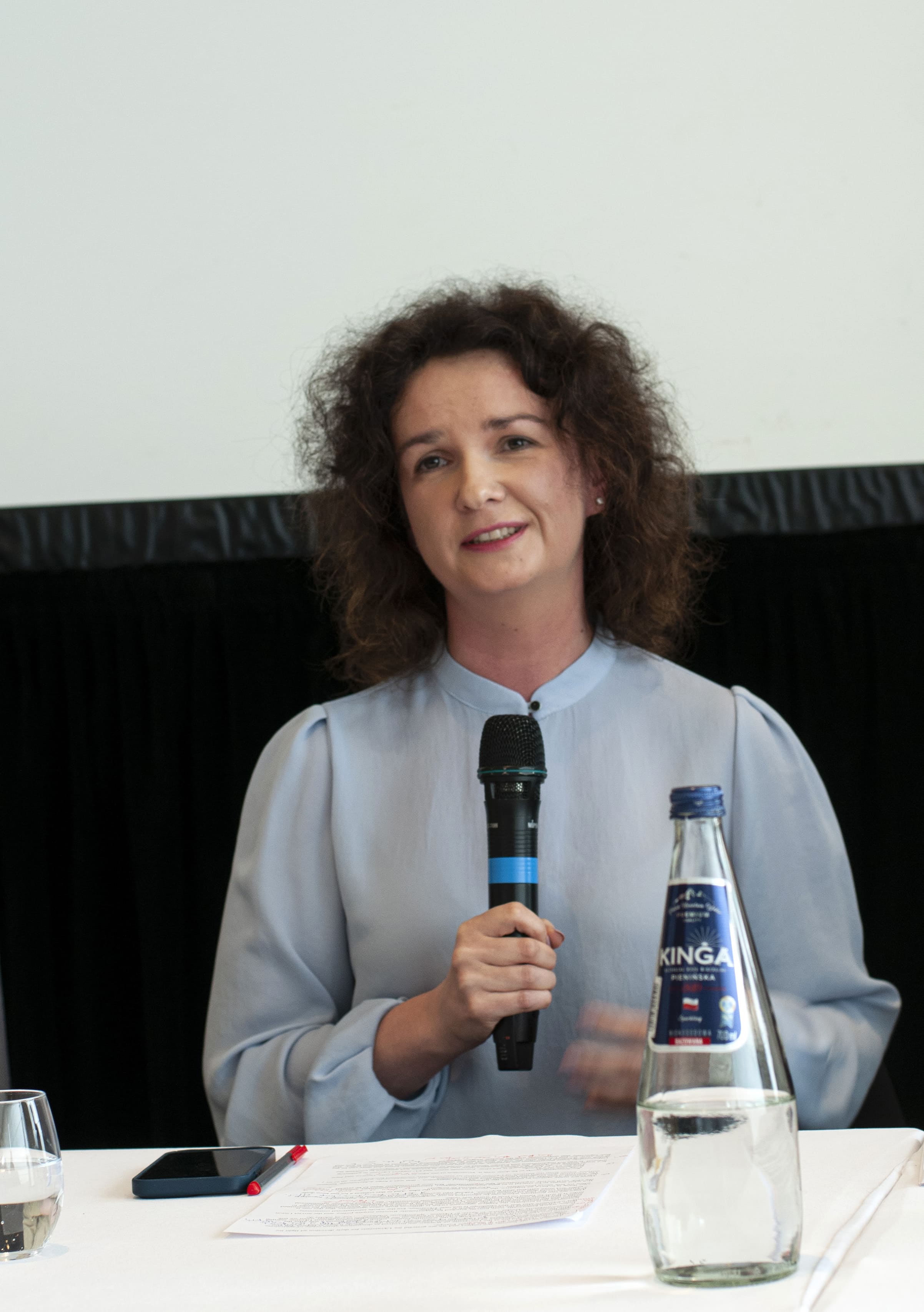 Prof. Agnieszka Bieńczyk-Missala from Faculty of Political Science and International Studies of the University of Warsaw emphasized the support of the Ukrainian initiative to create a Special Tribunal on the Crime of Aggression on the part of the Polish scientific community. She noted: “It should be remembered that the crime of aggression was recognized by the UN General Assembly. But as for the UN, yes, the Security Council does not work. There is no way to create a tribunal on the basis of this body. The General Assembly is a bit of a different story, and I believe that there is a chance, but… Of course, Russia is a permanent member of the Security Council, and that we are talking about the reform of the UN. Perhaps it will also be the beginning of a new debate about a new Security Council. Maybe the “new form” of UN General Assembly may decide on tribunal and punishment. But, of course, there are other possibilities – just an international agreement. In Europe, or in a larger sense, it will be enough to hold a tribunal,” Agnieszka Bieńczyk-Missala said.
Prof. Agnieszka Bieńczyk-Missala from Faculty of Political Science and International Studies of the University of Warsaw emphasized the support of the Ukrainian initiative to create a Special Tribunal on the Crime of Aggression on the part of the Polish scientific community. She noted: “It should be remembered that the crime of aggression was recognized by the UN General Assembly. But as for the UN, yes, the Security Council does not work. There is no way to create a tribunal on the basis of this body. The General Assembly is a bit of a different story, and I believe that there is a chance, but… Of course, Russia is a permanent member of the Security Council, and that we are talking about the reform of the UN. Perhaps it will also be the beginning of a new debate about a new Security Council. Maybe the “new form” of UN General Assembly may decide on tribunal and punishment. But, of course, there are other possibilities – just an international agreement. In Europe, or in a larger sense, it will be enough to hold a tribunal,” Agnieszka Bieńczyk-Missala said.
Prof. Milena Sterio, Public International Law & Policy Group (PILPG) Managing Director, mentioned that now different groups of international lawyers are talking about different formats of tribunals. First, the difference among them is in the scope of competence (whether this judicial mechanism will apply only to the crime of aggression or to the whole array of international crimes (war, crimes against humanity, genocide); will also consist the crimes against russians and belarusians; who will be the judges and according to what principle they will be chosen; where the hearings will take place and who will fund the tribunal's activities. “Therefore, the creation of a special tribunal or giving the International Criminal Court the jurisdiction over the crime of aggression against Ukraine will bridge a huge gap in international criminal law, – Milena Sterio noticed. -The newly established tribunal also may provide in its statute for a mechanism of compensation for damage caused as a result of russia’s aggression”.

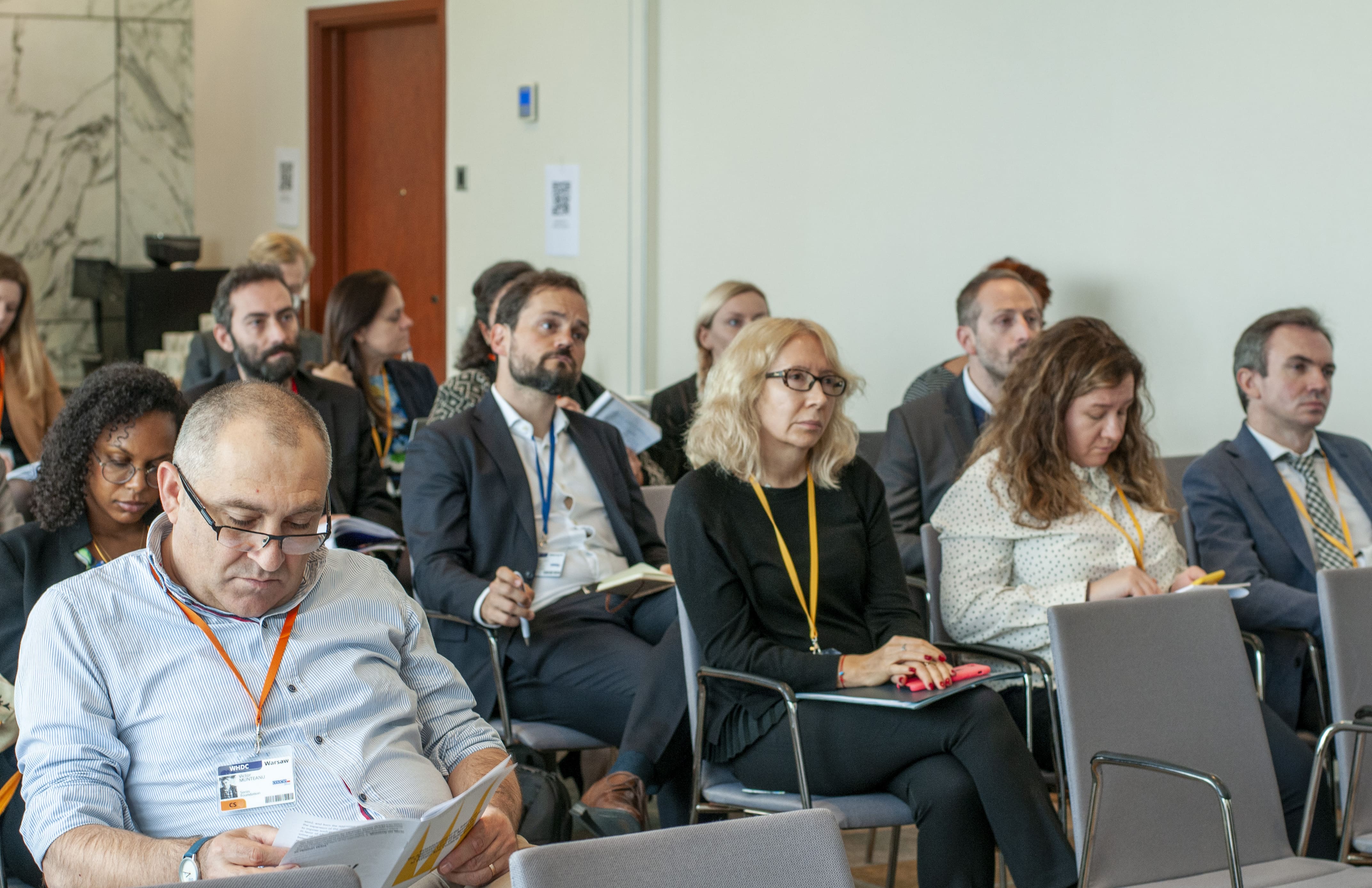
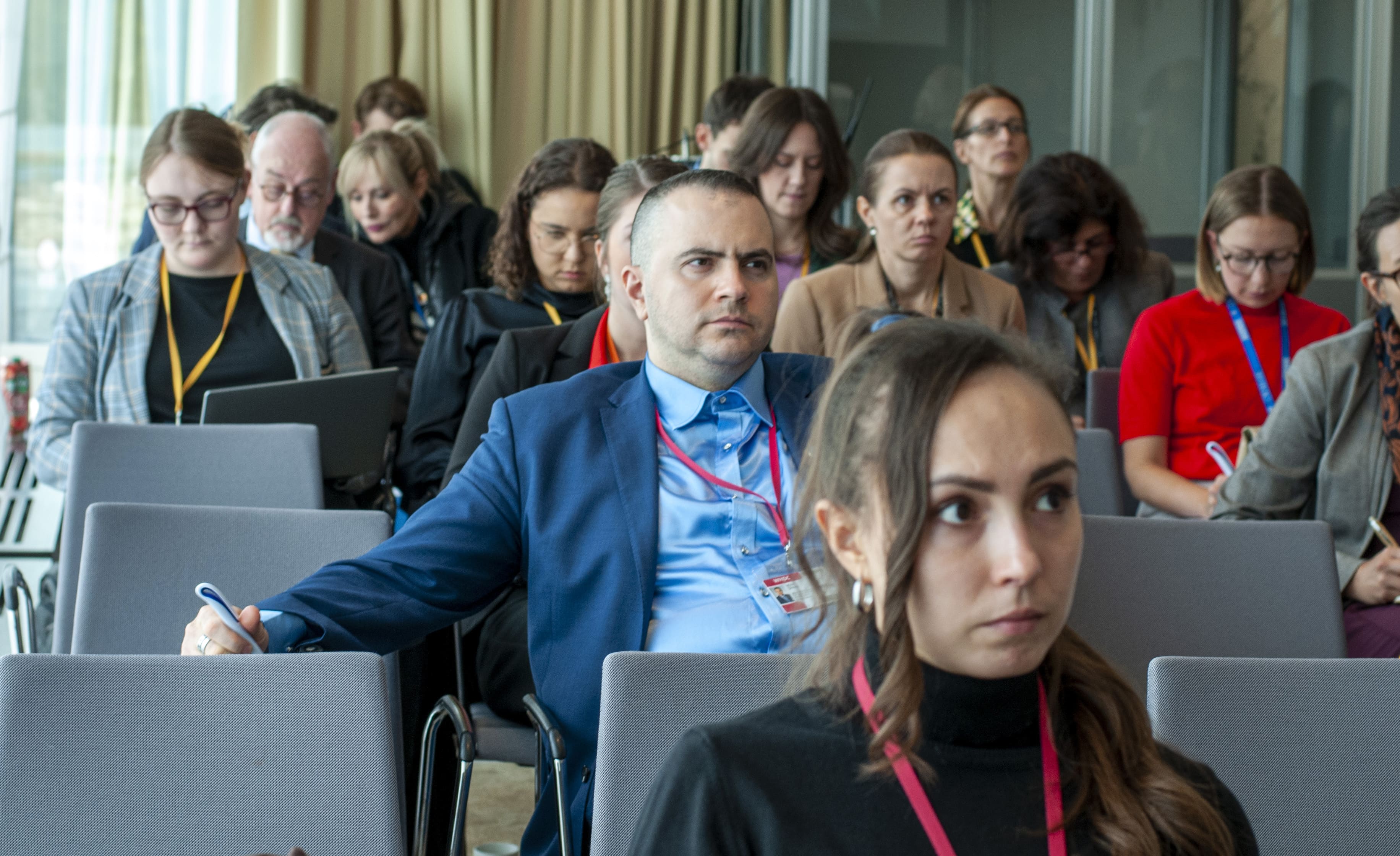
Read also:
